Transcripts
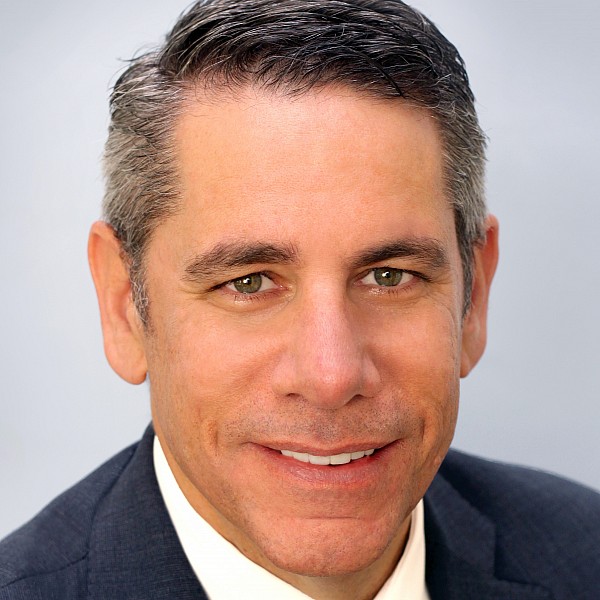
Erik: Joining me now is Sachem Cove co-founder and fund manager, Mike Alkin. Mike, it's great to get you back on the show. It's been, I don't know, six months or so. Last time I talked to you was just before a market bottom. Let's make that a tradition. It's great to have you back on, let's start with the big elephant in the room. We've got, what I think is arguably the best nuclear news flow year in the history of the nuclear industry, between restarts, new builds, SMRs, Chris Wright announcing that the US is mounting a gigantic nuclear renaissance, touring the national laboratories that do the best research, government signaling that they're going to be very supportive of nuclear. It's got to be the most bullish year ever. And I don't think we've ever seen worse investor sentiment. We're down 40%, market’s crashing. What gives, Mike? How is this possible? And how long can it continue?
Mike: Yeah, look, we're talking about uranium prices down, I think we have to ask ourselves, which uranium price? As you know, there are two types of prices: spot and term (long-term contracts). The spot market is 26% of the market, 25% of the market. The last couple of years, utilities, the end user, they're 14% of that of the spot market. So, by definition, just simple math, you take the 2025, 26% of market, and they're 14% of it, utilities by 4% of the overall volume of pounds in that market. And utilities, really the only end user, you know, save a government here or there, but they're it. So, there's a focus on that. And the spot market is very thin. There's not a lot of demand in it. Most of the market, 70% is producers, or 70% are traders that are trading in days and weeks, not in several months and years. So, it's a flows market. Some flows come in at times, off-take, there might not be a buyer there, but it's not fundamental supply and demand. However, the long-term market is, that's where 75%+ of the pounds trade. And in that price, we've seen that price up, last year, that price was up in the high teens, percentage wise. This year, it's year to year from last year, this year, it's up 7% despite volumes being down over 20% in that contract market. That's the economic viability supply. That's the view we're taking. That's where companies make their money, right? So that's where it's been. Spot market serves as a gauge. But why is it? Why do people pay attention? Because it's reported once a day, and the term markets reports once a month. And it’s as basic as that, but in no way, shape or form, is it representative of the supply and demand in the market and the amount of available uranium needed to fuel their global reactor fleet.
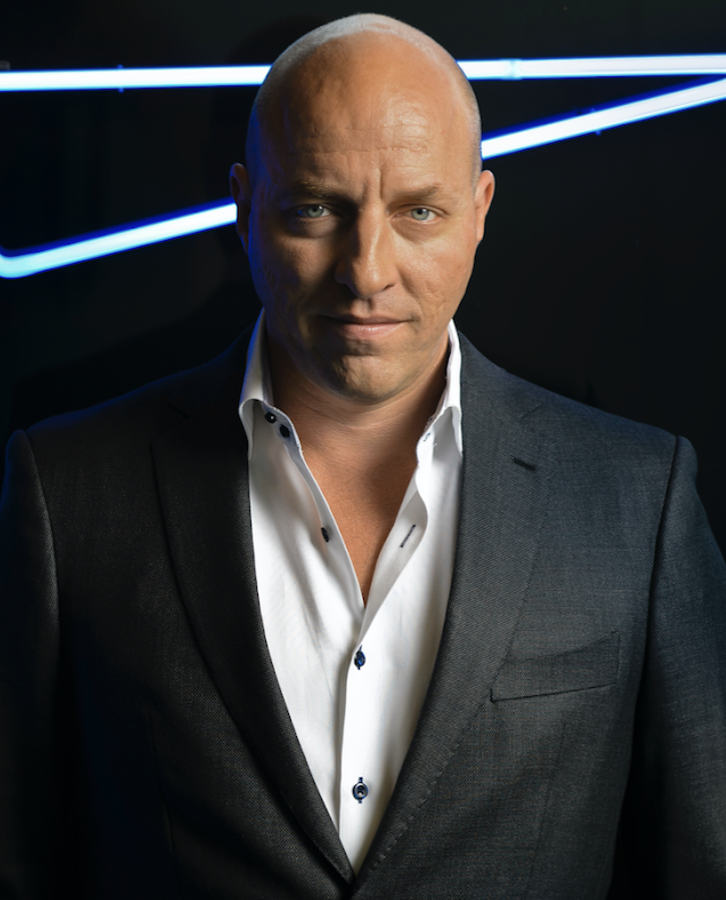
Erik: Joining me now is freelancer.com founder and CEO, Matt Barrie, who's also becoming a world renowned expert on artificial intelligence. Matt just published a fantastic article, which I would consider to be a must read. It's called AI of the Storm, that's linked in your Research Roundup email. If you don't have a Research Round up email, you're not yet registered at macro voices.com Just go to our home page macrovoices.com, click the red button above Matt's picture, which says, looking for the downloads. Matt, why don't we start with the State of the Union, if you will. What has changed in the world of AI in the six months since we last had you on?
Matt: Well, it's been a dramatically changing landscape in the last six months. As it turns out, you can assemble a ragtag team with a relatively modest budget and even work on potentially AI as a side project and deliver a model which could, can challenge the state of the art of what was has been coming out of Silicon Valley. You're seeing this not just with independent, private companies launching models here, there, everywhere. But you're also seeing it with open-source efforts, and, in fact, starting a foundational AI model seems to be akin to opening yet another Thai restaurant, albeit potentially a very good Thai restaurant in Thailand, while at the same time handing out the recipe book and the business plans. You're seeing efforts come from left, right and center that you wouldn't expect. Elon Musk managed to assemble, did it the traditional way, and managed to assemble a very large data center with Grok 3 and get access to the hardware, and now has produced one of the leading models, really getting OpenAI run for its money in the US. But you're seeing efforts from all around the world tackling different parts of the problem, whether it's team in France called Mixtral, or now the clear and present threat is coming directly out of China, with the likes of DeepSeek, where, literally just out of nowhere, late last year, a team of 160 ragtag engineers on at a hedge fund, worked on a side project and dumped out a model, DeepSeek-V3 and then the second model, DeepSeek R1 which really challenged the state of the art of OpenAI's foundational models. And they managed to do so on a fraction of the budget. It's been rumored that the training that was involved for DeepSeek involved about 2000 GPUs, when it would normally take 20,000 GPUs, they achieved the 10 times efficiency in the training of these models through just some smart optimizations under the hood. A bit like taking a race car and doing some tinkering with the engine, they managed to speed up the training about 10 times. And as a result of that, the training budget is remembered to be around $5 or $6 million which blows up the water in comparison to some of the latest we've seen in the valley, where training models in the order of $100 million. So, you're seeing all these competitive threats come out of nowhere, and models are being released, really, at such a rate. I think just before we started the podcast today, you commented there was another DeepSeek model was just launched overnight, which people are trying to get their hands on and understand what that's about. But there's certainly competition coming from left, right and center. At the same time, these models are getting a lot more sophisticated, so they're now multi-modal. That means they can take in text, they can take in images, they can take and they can produce text and images, or take in PDFs and a range of different modalities, and output in different modalities directly. So, you don't have to really have a translation step in between them. And simultaneously with all of that, there's been a cataclysm in terms of the hardware layer, which we can talk about in a second, coming out of China as a result of US sanctions.
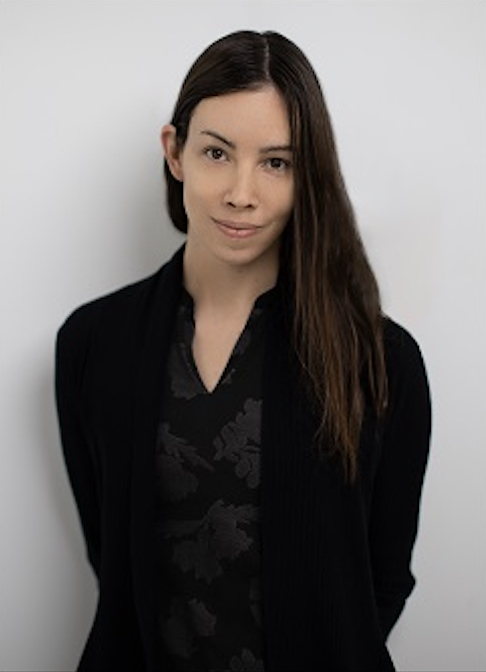
Erik: Joining me now is Lyn Alden, founder of Lyn Alden Investment Strategy. Lyn, it's great to get you back on the show. It's been too long. Let's get into what's on everybody's mind right now, which is, wow, big correction on the S&P, markets generally, as we've seen, what is at least a relief rally, a bounce up to almost the 200-day moving average. The rally stopped right at the volume weighted moving average, or volume weighted average price, as some people call it. We've seen, as we're recording here on Tuesday afternoon, Tuesday was a little bit of a down day. Does that mean the selling is about to resume, and we haven't seen the bottom yet? Are we just stumbling here? What do you think is happening? What's driving this? What's the big picture behind it?
Lyn: Well, thank you for having me back. Always happy to be here. And when I kind of focus on what I think, expectations around the equity market, I focus more on, do I think it's going to have a decent year or a bad year, or even a decent two to three years, or not a very good two to three years. I try not to draw the line on individual levels. I leave that to the professional traders, because that's a hard enough profession, even for those that focus 100% on it. And so, it's nice that there's like, a little bit of a near term bottom here, and we kind of put the end to lower highs. I don't have a conviction of what happens in the next few weeks, I've been making the case we've entered more of a headline driven market. So, the past couple years were more of a mechanical, liquidity driven market, where things tended to trend until they didn't. Whereas the headline driven market, quite big turnarounds can happen pretty quickly. So, I think that, if kind of the current period of policy uncertainty continues, if we don't get more visibility on tariffs, yes or no, and retaliatory tariffs, yes or no, and some of the questions around DOGE and fiscal, then it's certainly possible that this could bleed lower. But I generally have a view that large cap US indices are just not super attractive here on a risk-reward basis. So, I expect chop in general, that could be chopping to slightly lower lows. It could be being range bound for a period of time. Don't really have conviction, but I do find other areas to be more investable and more interesting at the current time.
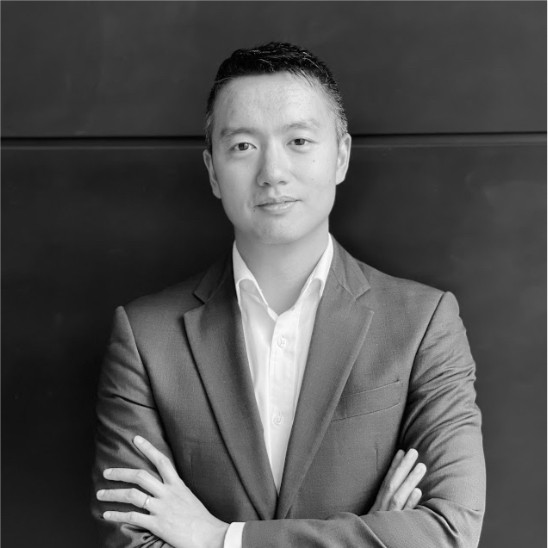
Erik: Joining me now is Variant Perception CEO, Tian Yang. As many of you already know, Variant Perception is well known for their excellent graphs and charts, so you're definitely not going to want to miss the slide deck that accompanies this week's interview. Registered users will find the download link in your Research Roundup email. If you don't have a Research Roundup email, it means you're not yet registered at macrovoices.com. Just go to our home page, macrovoices.com, click the red button above Tian’s picture that says, looking for the downloads. Tian, it's great to get you back on the show. It's been quite a while. Let's start with the big picture before we dive into the slide deck. Obviously, I think the biggest issue in macro right now is President Trump, whether you love him or whether you hate him, nobody can argue that he's got unorthodox policy approaches, and clearly, he's taking some very bold policy moves. I suppose I could argue that that means LEIs are more important than ever, because they tell us when a new trend, perhaps as a result of the changing administration is upon us, or you could argue the other side of that, which is if LEIs depend on long data series, obviously when everything has changed, maybe that invalidates part of it. How should we think about LEIs in an environment when there's been such a profound change in in the political regime?
Tian: Well, hi Erik, glad to be back. And certainly, I think that's a great question. In a way, it's kind of simultaneously true, right? You have this duality, where, on the one hand, I think we do really need to make sure we have an anchor using lead indicators of growth, inflation, policy regimes of liquidity, just to ensure we have a base case. But at the same time, clearly, we have to appreciate which of the data points that are actually capturing what's going on and which of the data points can't react to the headlines and the news, the tariffs and so forth. So, I think it's a bit of both. I mean, the way we're approaching is to realize that clearly, even things like tariff and sentiment, they can clearly affect survey data, a lot of these implicit kind of sentiment things are going to be where it shows up first in the data. But I think this year, you do kind of need to have, quote, unquote, like a view, especially on kind of the bigger political trends and picture, and then use that to contextualize where leading indicators are. So, I think overall for us, it's kind of like when we, you know, the kind of most overarching model we have which kind of combines growth, inflation policy and liquidity is still being pretty balanced in terms of macro risk, right? So, it does see like a mix of upside downside risk. So, in general, it's still been somewhat more benchmark allocation, but we're kind of overlaying that a little bit with essentially two longer term frameworks we have, where we think that this Trump administration is one, a repeat of kind of the Reagan playbook, in particular, using trade policy to encourage reshoring, encourage manufacturing to come back to the US. You know, very much analogous to Reagan, getting the Japanese to come build car factories in the US in the 80s. And ultimately, obviously, a lot of these policies leading to an end point that's kind of Plaza Accord. And obviously, there's a lot of talk about Mar-a-Lago accord right now as well. So, you kind of have this one overlay over the top that clearly is a pretty big shift. I think we even rolled out, put a note out, talking about tariffs will continue until morale improves. That's kind of the overlay over the top of that. So essentially, it's kind of base case, very neutral, but have a slightly more stagflationary tilt over the top.
And then the second big, kind of strategic overlay, or difference is that, to us, it looks like Monroe. The Monroe Doctrine is very much back in terms of the geopolitics and the US direction. So, our understanding of that is essentially more localized spheres of influence, and kind of like a more of a splitting of the areas of influence globally. So again, this is kind of America for the Americas, where, from Panama to Canada to Greenland. It’s like, this is the US is local sphere of influence, so the US needs to dominate that. And every other country needs to just stay out of the way. But equally, in return, Asia is kind of China's dominant sphere of influence. So, it looks like this administration cares a little bit less on exactly what happens in Taiwan. So China gets to dominate that probably a little bit more, but in return, China needs to lay off. So that's kind of two bigger, currently, kind of two bigger overlays we're putting it over the top elite indicators and kind of tying that together to come up with investment themes.
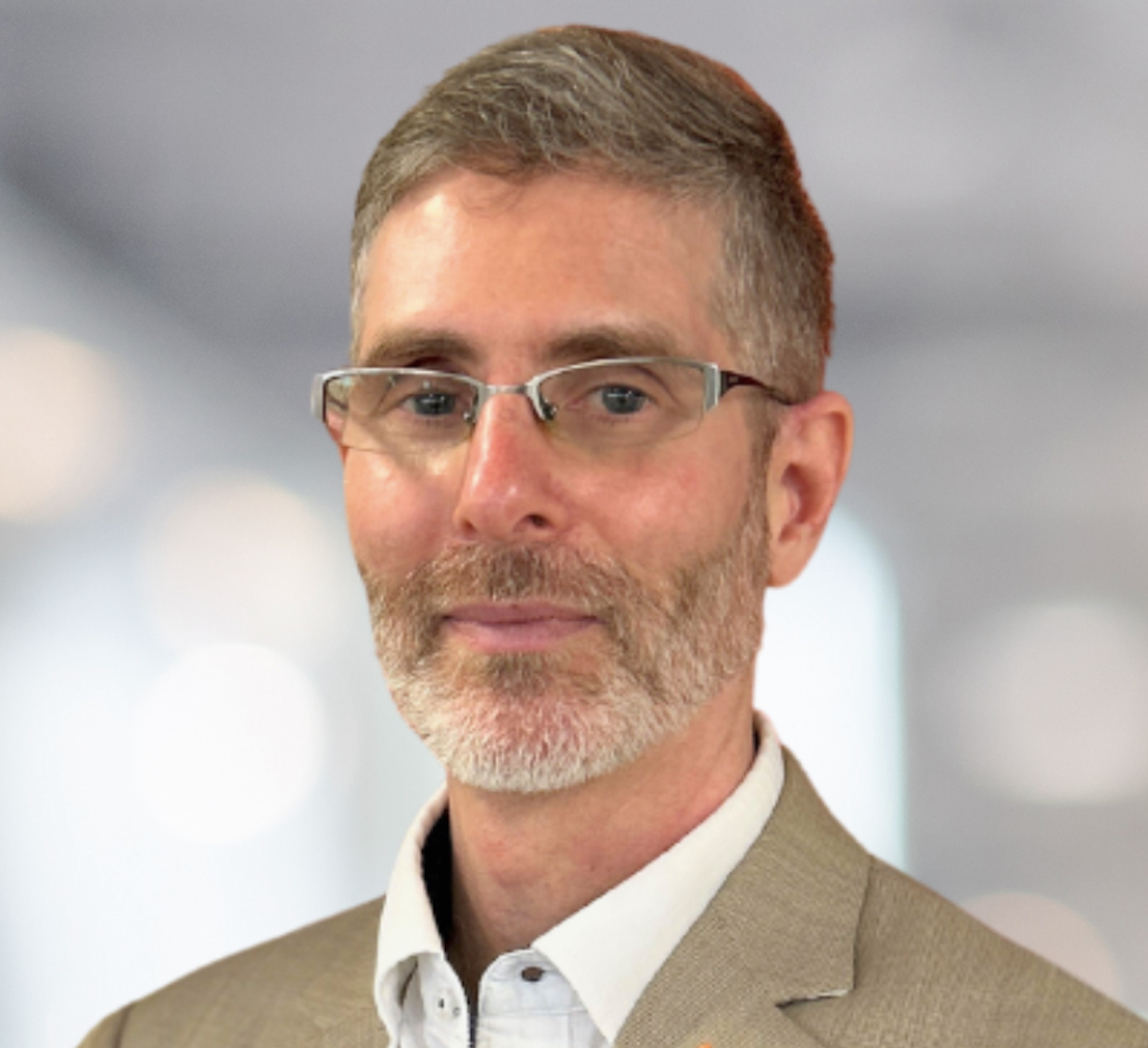
Erik: Joining me now is Michael Every, global strategist on economics and markets for Robobank. Michael, you're back kind of early. We don't normally have someone back just six weeks after your first appearance on MacroVoices, where you were super popular. We had another guest booked this week who had to back out, when we went to look for a backup guest, I just thought, wow, as much as it's only been six weeks, your comment, when you were on before, saying, take President Trump very seriously, but not always literally, proved to be so prescient, it just seemed like such a fit this week. Michael, what the heck just happened in the Oval Office? What's the real agenda? What's going on here? How do we make sense of this news flow around Zelensky and Trump and the falling out and now Europe is befriending Zelensky, and where is this all headed? What does it mean? How do we sort it out?
Michael: Great question. Good to be back, and I have to say, let's be honest, that six weeks feels like six months or six years in terms of the news flow that we've seen and the sheer exhaustion that I think we're all feeling. So, there's a lot to unpack there. Should we start with Zelensky?
Erik: Let's do it.
Michael: Okay. So, I mean, there are so many different ways that you can look at that, and there are such passionate opinions of it from different sides. Clearly, what we saw on that fateful Friday in the White House was a diplomatic failure of historic proportions at the very, very highest level. That's not how diplomacy is supposed to be done in public. I can assure you, that's how a lot of diplomacy is done when the cameras are turned off, but that should never have been done like that. And you can blame Trump, some people have, you can blame Zelensky, and I personally think far more of it since when Zelensky, he didn't realize where he was and the audience he had, and he was using a lot of the same rhetorical tricks that go down well in Europe and do not work in America. But the long and the short of it is that trust was already not there and it blew up. But I think the greater likelihood is, and the way things are moving, by the time people are listening to this, it could already be true that whilst you've seen today, in Asia time, America now pause all military aid to Ukraine. To add extra pressure on top, there really aren't many good options for Ukraine other than signing that minerals deal, which is what blew everything up on Friday, and then proceeding to try and flesh out what does or doesn't constitute some kind of security guarantee of sorts afterwards, because it's not going to happen the other way around. Europe isn't really in a position practically to do it. America has said it won't do it. No one else will. And so, it's really that or nothing. So, I expect we will return to that. And I think Zelensky, you know, much humbled, even if he doesn't do it in person, will end up signing.
MACRO VOICES is presented for informational and entertainment purposes only. The information presented in MACRO VOICES should NOT be construed as investment advice. Always consult a licensed investment professional before making important investment decisions. The opinions expressed on MACRO VOICES are those of the participants. MACRO VOICES, its producers, and hosts Erik Townsend and Patrick Ceresna shall NOT be liable for losses resulting from investment decisions based on information or viewpoints presented on MACRO VOICES.
